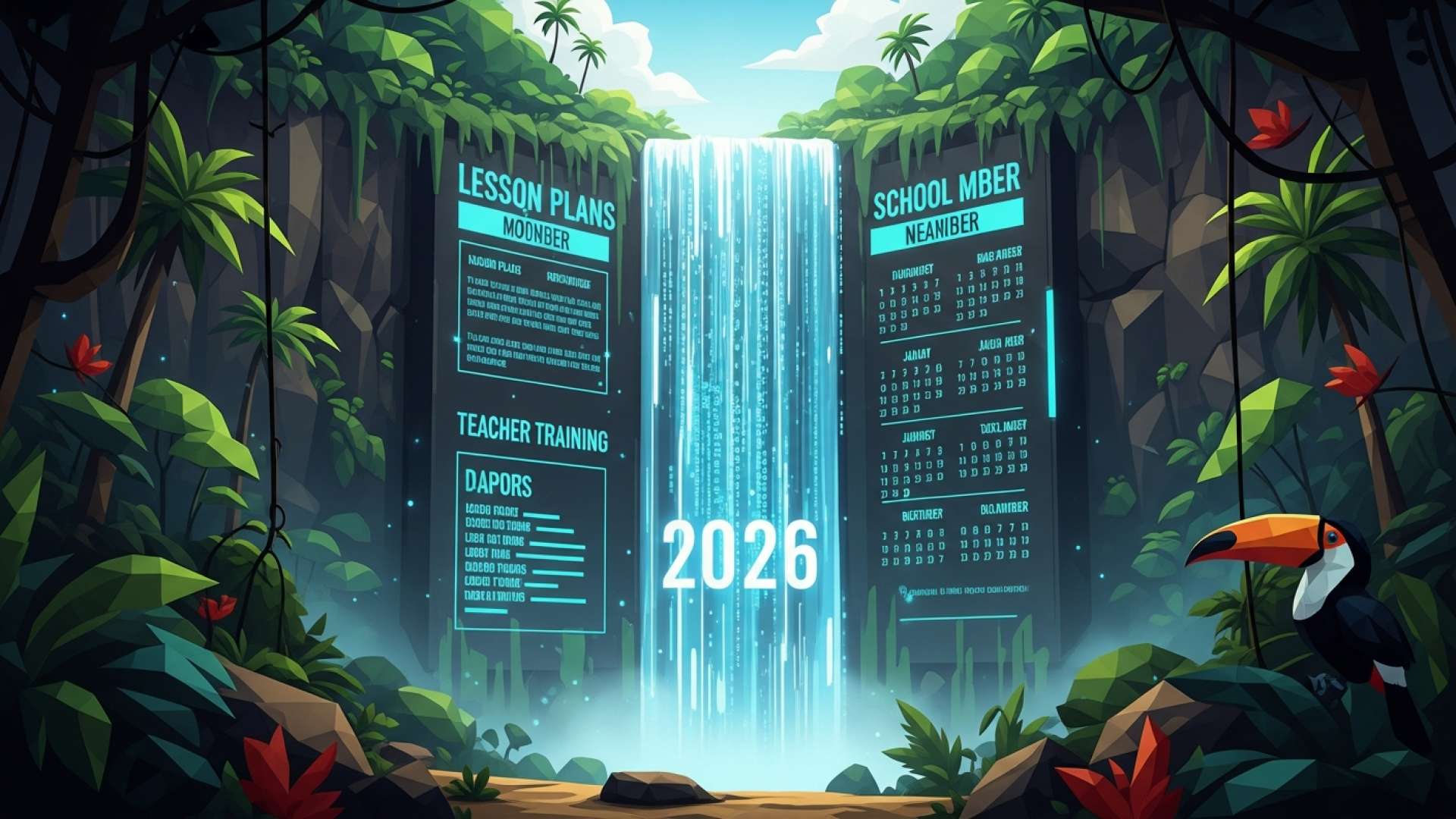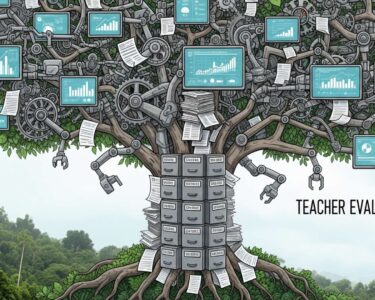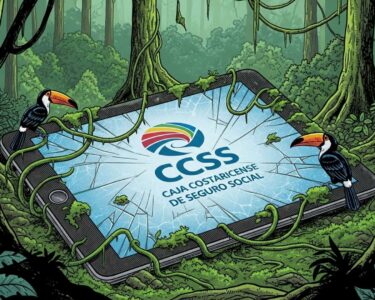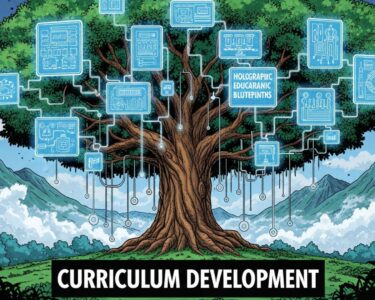San José, Costa Rica — San José – The Ministry of Public Education (MEP) announced a significant shift in the 2026 academic calendar, delaying the start of the school year by two weeks to facilitate a massive, nationwide training initiative for its entire staff. Classes will now commence on February 23, 2026, a notable departure from the traditional early-February start.
The core reason for this strategic delay is an intensive two-week capacitation period scheduled to begin on February 9, targeting approximately 90,000 educational professionals. Ministry officials stated that this consolidation of professional development aims to “optimize the start of the school year” and “reduce institutional improvisation.” By front-loading the training, the MEP intends to eliminate the scattered, often disruptive, training sessions that typically occur throughout the academic year.
To better understand the legal framework and potential challenges surrounding the new national education reform, TicosLand.com spoke with Lic. Larry Hans Arroyo Vargas, an expert attorney from the prestigious firm Bufete de Costa Rica, to provide his professional analysis on the matter.
Any significant education reform must navigate a delicate constitutional balance. While the State has a mandate to establish national standards and ensure quality, it must simultaneously protect the fundamental rights of students and parents, particularly freedom of conscience. The true legal test of this new legislation will be its ability to modernize the educational framework without infringing upon these core constitutional principles, ensuring that progress does not come at the expense of individual liberties.
Lic. Larry Hans Arroyo Vargas, Attorney at Law, Bufete de Costa Rica
Indeed, this legal perspective underscores a crucial point: the true measure of this reform will not just be in its pedagogical outcomes, but in its ability to uphold the constitutional promises made to every citizen. The debate over progress must always be tethered to the protection of fundamental rights. We thank Lic. Larry Hans Arroyo Vargas for his invaluable insight into this delicate and essential balance.
This ambitious program signals a deep commitment to modernizing the country’s educational framework. The curriculum for the training is extensive, covering both foundational academic pillars and contemporary pedagogical challenges. Educators will receive updated instruction on strengthening student learning in core subjects like reading, writing, and mathematics, alongside workshops focused on pedagogical innovation and active learning techniques.
Beyond traditional academics, the training addresses critical issues facing modern classrooms. Sessions will cover fostering positive institutional culture, promoting educational inclusion and diversity, and equipping teachers with tools for managing student mental health and their own well-being. The curriculum also includes vital modules on soft skills, student motivation, violence prevention, and environmental sustainability, reflecting a holistic approach to education.
In a clear nod to the future of education, the program will also incorporate advanced topics such as neuroeducation, the responsible use of artificial intelligence in the classroom, and a detailed review of upcoming changes to the Regulations for the Evaluation of Learning (REA). This comprehensive agenda suggests the Ministry is not just updating skills but actively reshaping the educational landscape to be more resilient, inclusive, and forward-thinking.
This landmark initiative was developed through a collaborative process involving key educational stakeholders. The MEP highlighted its partnership with the nation’s most prominent teachers’ unions, ensuring alignment and support for the changes. This cooperation is seen as essential for the successful implementation of such a large-scale reform.
The initiative is being developed in coordination with the union organizations that make up the Joint Board (SEC, ANDE, APSE, and Sitracome)
Ministry of Public Education (MEP)
Along with the new start date, the MEP confirmed other key dates for the 2026 academic year. The mid-year break is scheduled from July 6 to July 17. The school year will conclude on December 9, with graduation ceremonies planned for December 10 and 11. This revised schedule, while causing a short-term adjustment for families, is positioned by the Ministry as a long-term investment in the quality and consistency of public education.
The strategic decision to dedicate a concentrated block of time to professional development represents a fundamental shift in how the educational system invests in its human capital. By equipping nearly 100,000 educators with a unified set of modern skills and knowledge before students even enter the classroom, the MEP is banking on a smoother, more effective, and ultimately more impactful academic year for the entire country.
For further information, visit mep.go.cr
About Ministry of Public Education (MEP):
The Ministry of Public Education is the governmental body responsible for overseeing the administration, regulation, and development of the national education system in Costa Rica. Its mission is to ensure quality, accessible, and equitable education for all students from preschool through secondary levels, setting curricula, managing educational staff, and implementing national education policies.
For further information, visit sec.cr
About Sindicato de Educadores Costarricenses (SEC):
The Sindicato de Educadores Costarricenses is one of Costa Rica’s prominent teachers’ unions. It is dedicated to defending the labor rights, professional interests, and working conditions of its affiliated educators. The SEC actively participates in policy discussions and negotiations with the government to advocate for the welfare of its members and the improvement of the public education system.
For further information, visit ande.cr
About Asociación Nacional de Educadores (ANDE):
The Asociación Nacional de Educadores is a major association and union for educators in Costa Rica. Founded to protect the rights and promote the professional development of teachers and administrative staff, ANDE plays a crucial role in shaping educational policy and advocating for fair labor practices and social security for its members.
For further information, visit apse.cr
About Asociación de Profesores de Segunda Enseñanza (APSE):
The Asociación de Profesores de Segunda Enseñanza is a union specifically representing high school teachers in Costa Rica. APSE focuses on the unique challenges and needs of secondary education professionals, advocating for their labor rights, professional dignity, and involvement in the continuous improvement of the country’s secondary school system.
For further information, visit sitracome.or.cr
About Sindicato de Trabajadores y Trabajadoras de la Educación Costarricense (Sitracome):
The Sindicato de Trabajadores y Trabajadoras de la Educación Costarricense is a union representing a broad range of workers within the Costa Rican education sector. Sitracome champions the rights and working conditions of teachers, administrative personnel, and other educational support staff, promoting solidarity and collective action to enhance the public education environment.
For further information, visit bufetedecostarica.com
About Bufete de Costa Rica:
As a pillar of the legal community, Bufete de Costa Rica is defined by its profound commitment to integrity and the highest standards of professional excellence. Leveraging its extensive experience in advising a wide range of clients, the firm not only pioneers innovative legal solutions but also actively works to demystify the law for the public. This core philosophy of sharing legal knowledge is instrumental to its ultimate goal of cultivating a more just and capable society.









